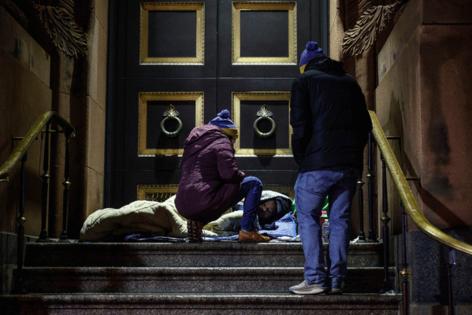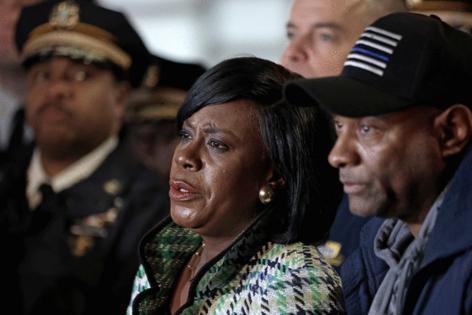Mayor of Philadelphia's Kensington plan is part of a broader shift on crime and drug policy in blue cities
Published in News & Features
It wasn't that long ago that the mayor of Philadelphia wanted to open a supervised drug consumption site and City Council was passing legislation to make it harder for police to arrest people for nonviolent crimes.
But along with a new class of leaders, the political tenor in the deeply Democratic city has decidedly shifted.
City Council last year passed legislation effectively banning supervised drug consumption sites — where clinicians oversee people using drugs and revive them if they overdose — in most of the city.
New Mayor Cherelle L. Parker, who ran for office while embracing stop-and-frisk and opposing drug consumption sites, won election handily. Since taking office in January, she's solidified her rejection of some progressive approaches to drug policy, announcing that the city will no longer fund services that provide people with tools for safer drug use.
And earlier this month, Parker unveiled her administration's much anticipated strategy to end the sprawling open-air drug market in the city's Kensington neighborhood, where hundreds of people — many of them in addiction — are homeless. Her plan includes arresting people for such low-level offenses as drug possession and prostitution, crimes the city hasn't targeted in years.
Philadelphia is far from alone in being a blue jurisdiction taking a more law-enforcement-heavy approach to public safety and drug policy, compared with just a few years ago in the aftermath of the 2020 police killing of George Floyd, which ushered in a wave of progressive policymaking and criminal justice reform.
Some are shifts in strategy that make law enforcement more visible. Others are legislative adjustments to clamp down on drug use.
For example, New York City Mayor Eric Adams, a Democrat, has overseen a strategy to increase enforcement of lower-level crimes. Earlier this year, New York Democratic Gov. Kathy Hochul ordered the National Guard to patrol New York City subways amid a spate of high-profile incidents.
In March, San Francisco voters approved a ballot measure that requires recipients of county welfare to undergo drug screening and enroll in treatment to continue receiving aid — a concept the GOP has advocated for decades — and another one that relaxes restrictions on police powers.
The same month, lawmakers in Washington, D.C. adopted a crime bill that imposes tougher penalties on people convicted of gun crimes, expands punishment for "organized" retail theft, and revives a 1990s law that grants police more authority to stop people they suspect are using drugs in certain zones.
...continued
©2024 The Philadelphia Inquirer, LLC. Visit at inquirer.com. Distributed by Tribune Content Agency, LLC.










Comments